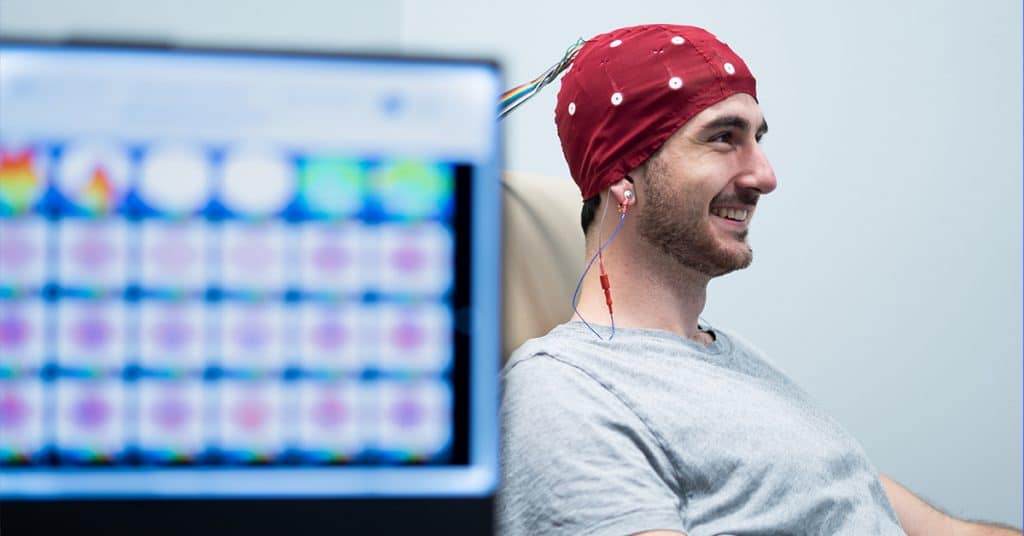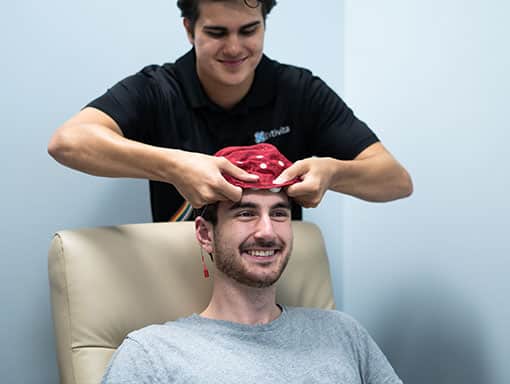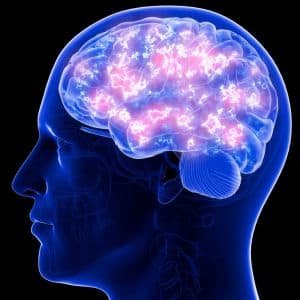Traumatic brain injuries (TBIs) can have a profound impact on individuals, affecting their cognitive, emotional, and physical well-being. Traditional rehabilitation methods have made strides in managing TBI symptoms, but a cutting-edge technique known as neurofeedback has emerged as a powerful tool in the recovery process. In this blog, we delve into the synergy between neurofeedback and TBI rehabilitation, exploring the potential of this technique in helping individuals with TBIs regain cognitive function and enhance their quality of life.
Understanding Neurofeedback for Traumatic Brain Injuries

Neurofeedback Therapies located at Extivita-RTP in the RDU area
Neurofeedback, also called electroencephalographic (EEG) biofeedback, is a non-invasive approach that enables individuals to self-regulate their brain activity. By employing sensors on the scalp to measure electrical brainwave patterns, neurofeedback provides real-time feedback through visual or auditory cues. This feedback empowers individuals to modify their brainwave patterns and optimize brain function.
Restoring Cognitive Function in TBI Recovery
Cognitive impairments, such as memory deficits, attention problems, and executive function challenges, are common consequences of TBIs. Neurofeedback has displayed immense promise in addressing these issues, as it facilitates the brain’s retraining process. Through repetitive sessions, individuals can learn to increase or decrease specific brainwave patterns associated with cognitive processes, resulting in improved attention, memory, and cognitive flexibility.
Enhancing Emotional Regulation for TBI Survivors
Emotional dysregulation is another hallmark of TBIs, leading to mood swings, irritability, and depression. Neurofeedback aids individuals in regaining emotional control by training the brain to produce the appropriate brainwave patterns associated with emotional stability. By reinforcing positive brain activity, neurofeedback can alleviate emotional distress, promote emotional well-being, and enhance overall quality of life for TBI survivors.
Promoting Neuroplasticity for TBI Recovery
Neuroplasticity, the brain’s ability to adapt and reorganize itself following injury, plays a crucial role in TBI rehabilitation. Neurofeedback stimulates neuroplasticity by capitalizing on the brain’s innate learning and adaptive capabilities. By providing real-time feedback, neurofeedback facilitates the formation of new neural connections and the strengthening of existing ones. This process aids in recovery, compensating for damaged brain areas and promoting overall rehabilitation.
Alleviating Physical Symptoms Associated with TBIs
Physical symptoms, such as headaches, dizziness, and sleep disturbances, often accompany TBIs. Neurofeedback has demonstrated its potential to alleviate these symptoms by modulating the brain’s response to pain and promoting relaxation. By targeting specific brainwave frequencies associated with pain modulation and sleep regulation, neurofeedback can help reduce physical discomfort and improve overall well-being for TBI survivors.
Case Studies and Success Stories of Neurofeedback in TBI Recovery
Numerous case studies and success stories underscore the efficacy of neurofeedback in TBI recovery. For instance, a study showcased significant improvements in attention, memory, and executive function in individuals who underwent neurofeedback training. Personal accounts from TBI survivors also highlight enhanced cognitive abilities, reduced emotional distress, and an improved quality of life following neurofeedback treatment.
Neurofeedback Treatments in the RDU area

Promoting TBI Recovery with Neurofeedback
Neurofeedback presents a promising therapeutic intervention for individuals navigating traumatic brain injury recovery. By leveraging the brain’s inherent plasticity and teaching self-regulation, neurofeedback offers a non-invasive and effective approach to address cognitive impairments, emotional dysregulation, and physical symptoms associated with TBIs. As research and technological advancements continue to expand our understanding of neurofeedback, its potential to revolutionize TBI rehabilitation becomes increasingly apparent. It empowers individuals to regain control over their lives and optimize their recovery journey. If you or a loved one is seeking effective and personalized neurofeedback treatment for TBI recovery, we encourage you to contact us to begin your Neurofeedback journey. Our team of trained professionals specializes in providing neurofeedback therapy tailored to meet individual needs. Together, we can embark on a journey towards cognitive improvement, emotional well-being, and enhanced quality of life. Reach out to us today to explore how neurofeedback can be a valuable component of your TBI recovery plan.

